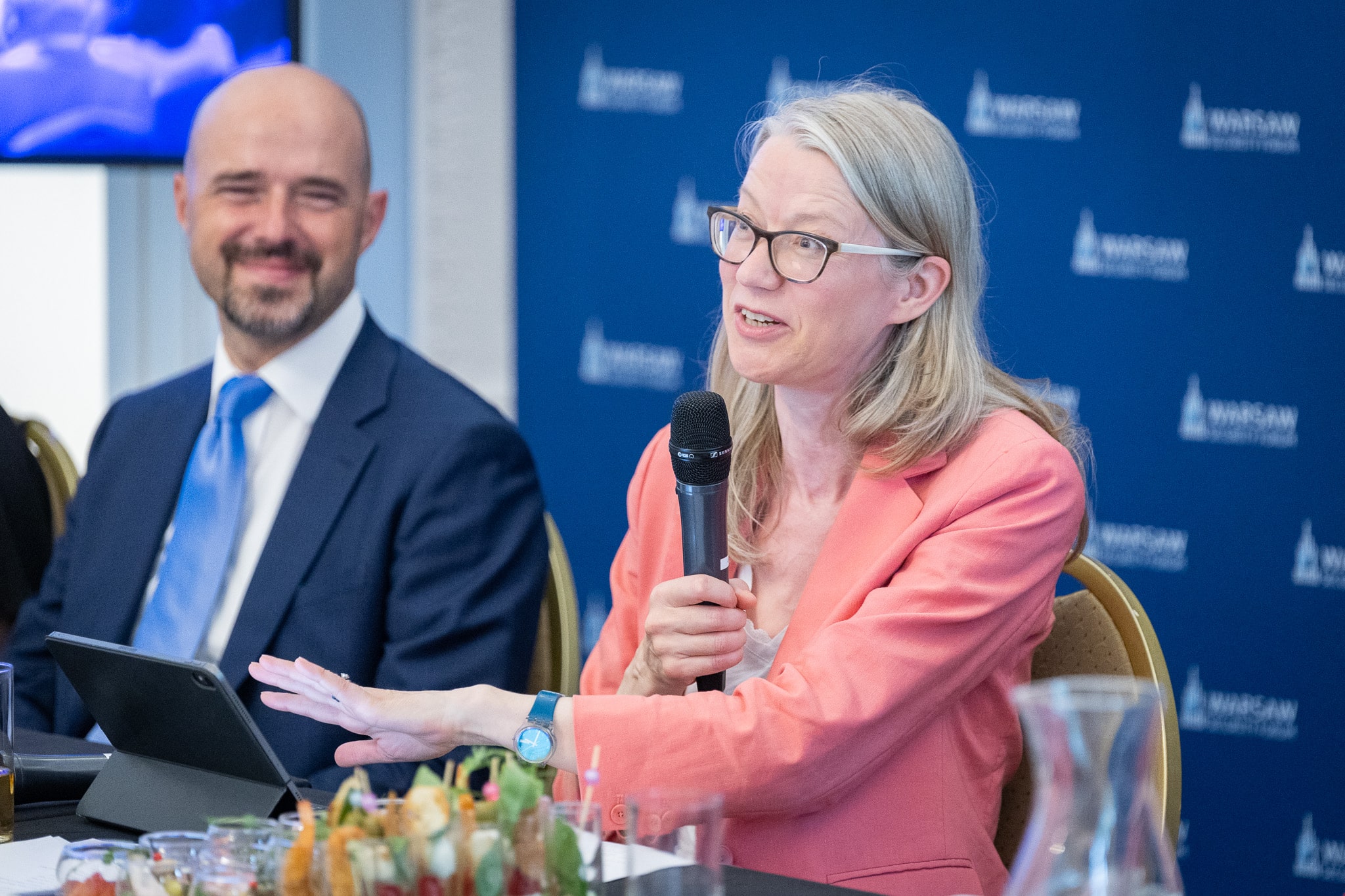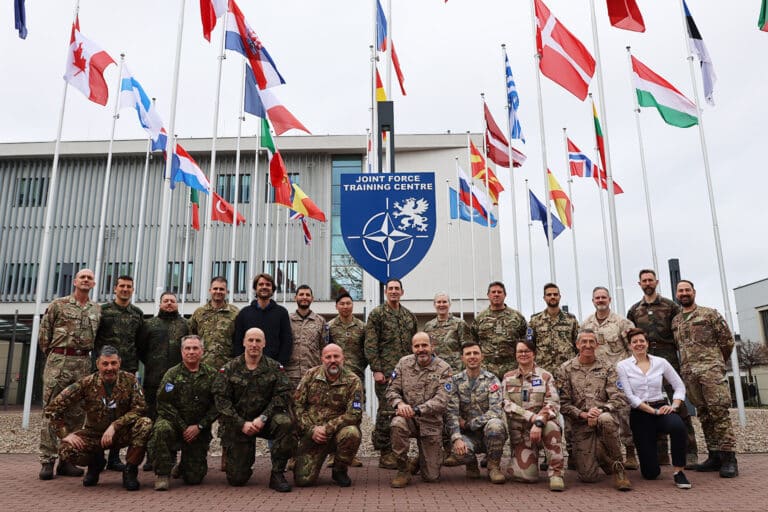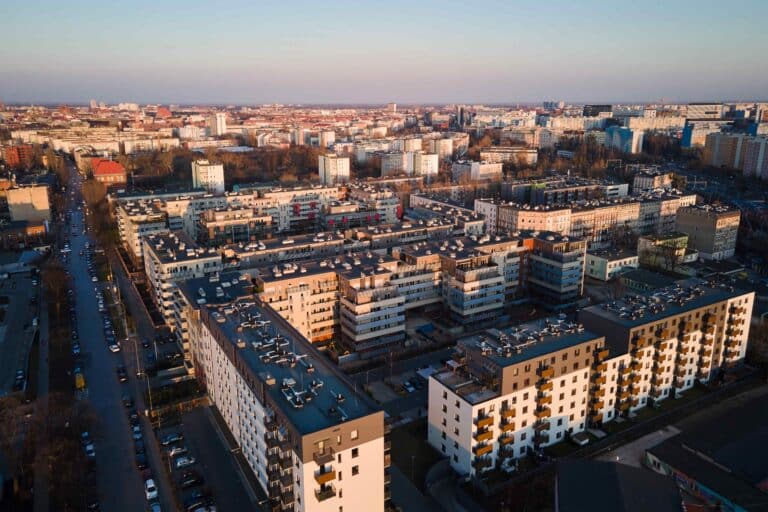Polish-UK relations at all-time high heading into 2024
2023 was another great year for Poland and the UK with notable symbolic steps taken that reflect one of Europe’s most important partnerships. Underpinned by strong shared priorities on regional security and supporting Ukraine, Polish-UK relations have been closely developing at one of the most critical and challenging times in Europe’s recent history.
There were several key moments in 2023 that encapsulate this recent positive trend in Polish-Anglo relations: The announcement of the 2030 Poland-UK Strategic Partnership, UK being the “partner” country of the Warsaw Security Forum with ministerial level representation, as well as major defense contract procurements like the 4-billion-pound missile system for Poland’s next-generation “Narew” air-defense system.
Although many of these were years in the making, the fact that all these positive and interconnected events occurred within the last 12 months signify potentially something special, and at the very least a shifting perception of the relationship’s importance on both sides.
Explaining the many subtleties and facets between two countries is inherently complex, with several potentially competing and paradoxical elements, though it is clear for those that have been paying attention that the partnership between Poland and the UK appears to be at an all-time high as we head into 2024. The question now on some minds is – will this trend continue?
Historical relations
Poland and the UK have an age-old partnership that can be traced back hundreds of years. Yet the 20th century is where you’ll find some of the most pivotal moments that shaped the future of Polish-UK relations. Great Britain helping Poland gain independence at the end WW1 after over a century of partition. Additionally, Poles and Brits were fighting side-by-side in WW2, in some of the most crucial battles such as the Normandy invasion and the Battle of Britain.
Yet there was a notable freeze in relations after Soviet occupation and the formation of communist Poland in 1945. Amidst the polarizing division of Eastern and Western Europe, Britain was viewed rather unfavorably. Especially given that it was hosting the Polish government-in-exile from 1940 and continued to do so until the country regained democratic sovereignty in 1989. Nevertheless, the end of the cold war clearly marked a new chapter in the relationship between the UK and Poland, with greater political and economic integration. Poland joined NATO within 10 years and the EU in 2004, on both occasions with the UK’s full support.
Post-Brexit relations
2016 was a memorable year in European political affairs, where populism gained influence and EU skepticism was on the rise. Late in the year before (October 2015) the Law and Justice (PiS) party came to power in Poland. Less than 10 months later would come the surprise decision of the British to leave the European Union, which spelled several concerns for Poland (as a member of the EU) and the UK. The impact on the 600,000+ Polish migrants living in the UK and their families, major disruption to trade, reduced university/cultural exchanges etc. All speculated at the time of this withdrawal decision to take many years to recover from, if at all possible.
Yet despite this tumultuous period, when the UK was navigating a post-Brexit world and seeking to strengthen non-traditional partnerships, away from its direct Western European neighbors, it found an ally in Poland. Hence, the UK warming to a somewhat like minded ‘Eurosceptic’ Polish government, where it could easily cooperate around regional security and defense was an unsurprisingly easy choice. Paving the way for the 2018 Treaty on Defense and Security Cooperation, which would later be supplanted by the 2030 strategic partnership.
In the meantime, Poland and the UK would also continue to increase trade with each other. By halfway through last year (Q3 2023), Poland found itself as the UK’s 14th largest trading partner at 1.7% of all UK trade. Additionally, the UK represents the 4th largest export destination for Polish goods and the largest outside of the EU, where Poland also enjoys the greatest trade-surplus from any country. However, this surplus and trade proportion will likely change after the recent major defense spending announcements in the latter half of last year.
NATO and the Russian Invasion of Ukraine:
One of the most important dimensions of the current relationship between Poland and the UK is their joint NATO membership. Despite there being 30+ member nations in the alliance, only a handful have held up to the commitment of spending at least 2% of their GDP on defense, including both Poland and the UK. A clear demonstration that both countries are committed to meeting their security obligations, amidst a deteriorating strategic environment on NATO’s eastern flank.
This mutual commitment to defense of NATO’s eastern flank is a critical element of current UK-Polish relations. It serves as a strong basis for existing cooperation and long-term stability between them. Moreover, any government of the future on either side will continue to invest in maintaining the status-quo of this relationship aspect, under current geopolitical circumstances.
Nevertheless, as we’re soon to mark the second anniversary of Russia’s invasion of Ukraine, we should be reminded that Poland and the UK have been its staunchest advocates in Europe since even before day 1, which continues to act as another important area of shared values. With a trilateral pact established in the week leading up the invasion, Poland and the UK have greatly influenced the outcome of the war in the early days of the invasion along with Ukraine’s chances of both survival and future victory.
Poland and the UK have also both been the trendsetters in supplying Ukraine with incrementally more advanced weapons systems. Both took the unambiguous position that there should be a full reclaiming of Ukraine’s sovereign and internationally recognized territory. Being stepwise on such a critical issue fosters trust, which is the necessity for any positive and durable relationship.
Ultimately, this major geopolitical event has exposed Poland’s strategic significance within Europe. From a geographical perspective, Poland borders on Belarus, the Russian exclave of Kaliningrad and Ukraine. It also maintains sovereignty over the small territory of land that connects the Baltic states with the rest of democratic Europe. Likewise, Poland now acts as a major logistics hub for Western arms and aid to enter Ukraine.
Therefore, this shared and credible commitment to defense is what will continue to underpin strong relations and trust between Poland and the UK heading into 2024. Acting as a solid foundation where future cooperation can easily stem from.







